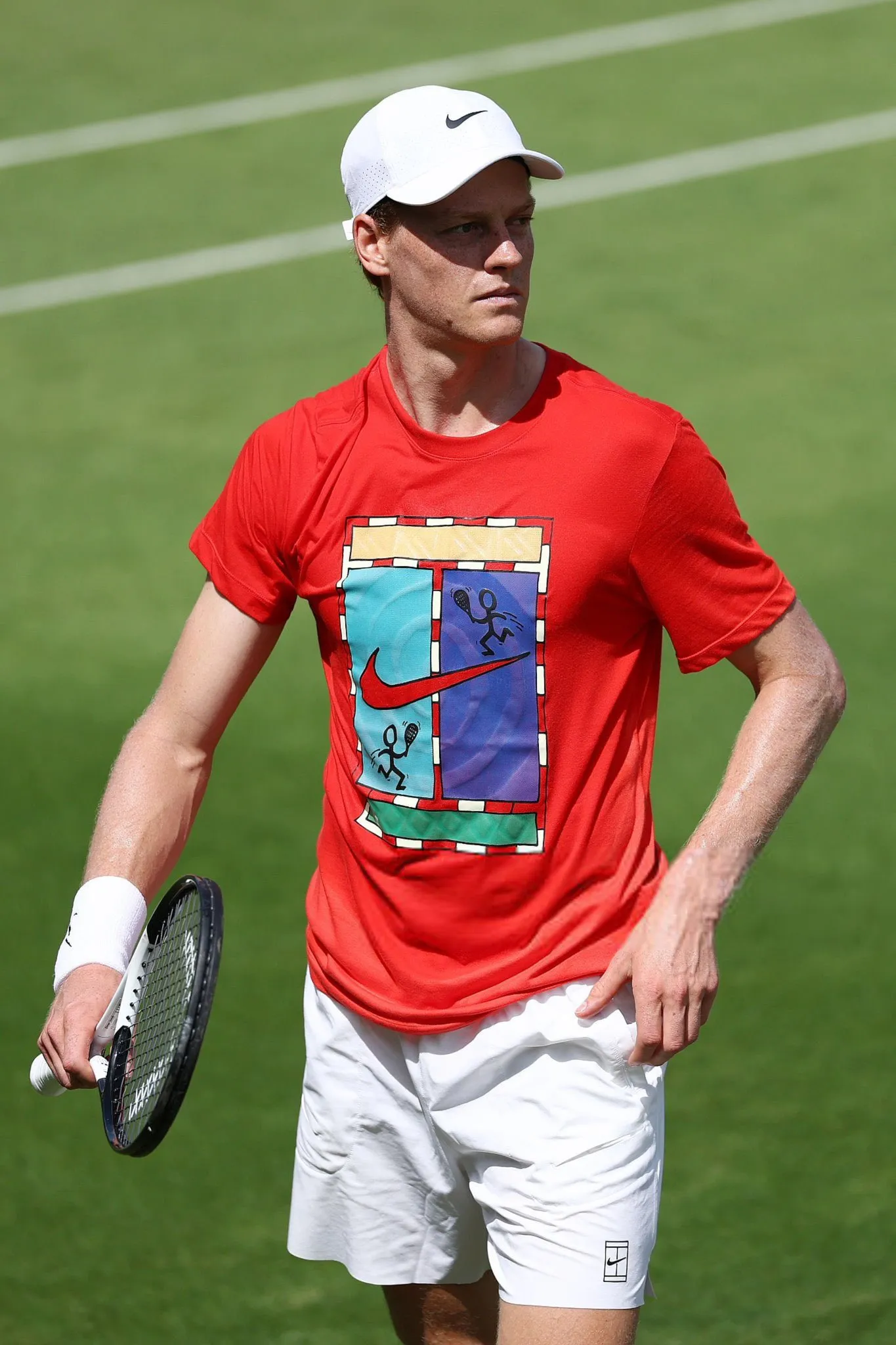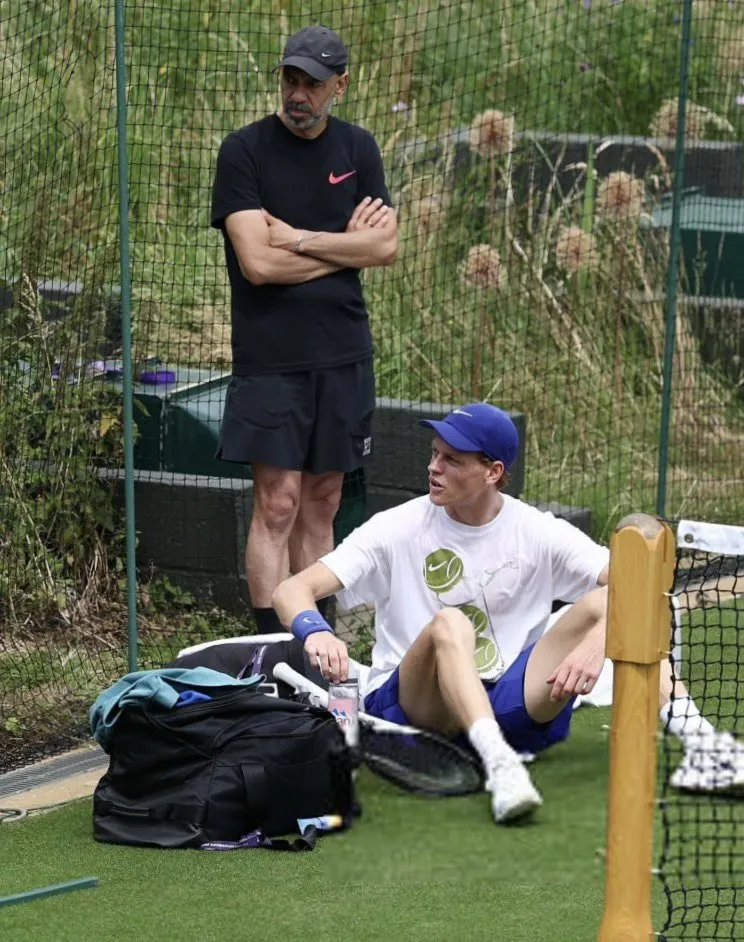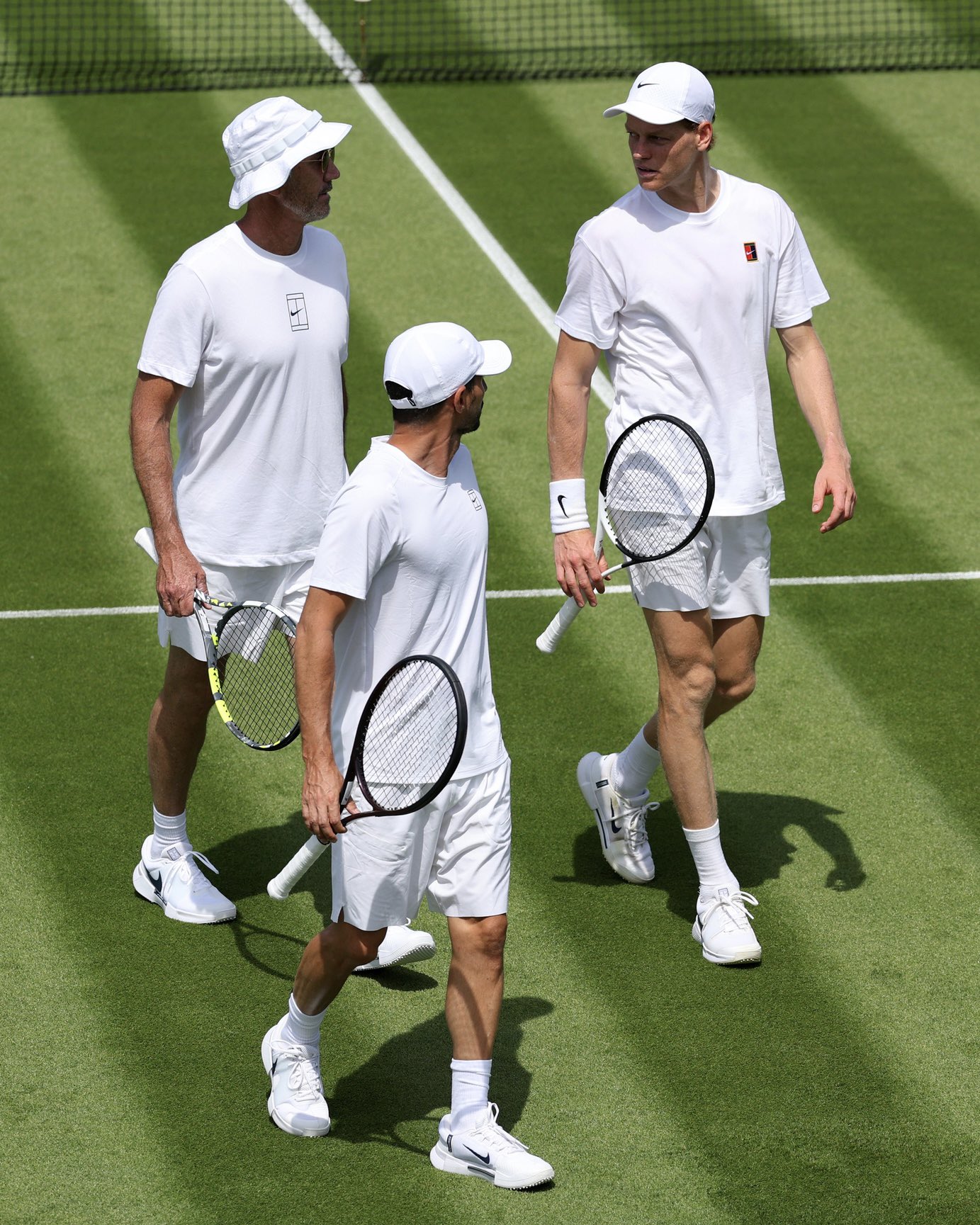

The Hidden Pain of Being World No. 1 — And Jannik Sinner Just Exposed It All
For most sports fans, being World No. 1 is the ultimate dream. It’s the top of the mountain, the position where legends are crowned and remembered. But behind the prestige, behind the shining trophies, and behind the applause from packed stadiums lies a truth very few talk about — the emotional cost, the isolation, and the unrelenting pressure that comes with being at the top. Recently, Jannik Sinner, the quiet and composed Italian prodigy, pulled back the curtain to reveal a raw and vulnerable side of what it truly means to sit on that throne.
Jannik Sinner’s Rise Wasn’t Just About Winning — It Was About Surviving
At just 23 years old, Jannik Sinner has captured the tennis world’s imagination. With his silky groundstrokes, laser focus, and calm demeanor, he quickly climbed the rankings and became the first Italian man to ever reach World No. 1. But when Sinner stepped into that spotlight, it wasn’t victory he spoke about — it was loneliness, mental fatigue, and the unexpected burden of expectation.
In a candid interview following his Roland Garros campaign, Sinner admitted that being No. 1 had not brought him happiness. It had brought pressure, scrutiny, and a schedule so demanding that even he — someone praised for his maturity — struggled to breathe under its weight.
When asked about how it felt to reach the pinnacle, Sinner responded not with joy, but with an almost haunting honesty: “You don’t sleep better at night because you’re No. 1. You just feel like everyone is watching you more closely — and waiting for you to fall.”
That single sentence captured what so many champions before him have tried to articulate, often too late — that success at this level can be as painful as it is rewarding.
The Loneliness of the Summit
It’s a well-worn saying in sports: “It’s lonely at the top.” But few understand just how accurate that phrase becomes when you’re the target of every opponent, the subject of relentless media coverage, and the face of expectations for an entire nation.
Sinner, known for his reserved nature, has never courted the spotlight. His rise was gradual, methodical, and free of drama. But once he became World No. 1, his quiet world was shattered. Sponsors called. Press conferences multiplied. Fans demanded more — more titles, more appearances, more magic. Suddenly, Sinner was not just playing tennis. He was performing.
He opened up about how hard it was to find rest between matches, to maintain relationships, and even to enjoy the sport he once loved so freely. “When you win, people celebrate you. But when you lose, even just once, the noise is deafening,” Sinner said. “It’s like the margin for being human disappears.”
That statement echoed like a scream in a soundproof room. Because while millions envy the life of a tennis superstar, few ever consider what is lost in the process — privacy, mental peace, and sometimes even the love for the game itself.
The Mental Toll: Expectations Turned into Chains
There’s a unique paradox in becoming No. 1 in the world. You work your whole life for it, only to realize once you get there that you’re not free. The title doesn’t liberate you — it imprisons you.
Jannik Sinner’s words made that paradox heartbreakingly clear. He talked about the fear of losing not just matches, but respect. Every mistake was magnified. Every dip in form brought speculation. Was he tired? Injured? Weak? Overrated?
No one asked how he was really feeling.
The modern tennis calendar offers almost no mercy. Players are expected to perform week after week, often in different time zones, under changing surfaces and weather conditions. Add the relentless travel, lack of sleep, and physical grind — and then imagine doing all of that while being the No. 1 player in the world, with every opponent aiming to take you down.
Sinner admitted that he found himself withdrawing emotionally during tournaments, not out of arrogance, but self-preservation. It was the only way he could stay focused. He had to detach to survive.
And that’s perhaps the most chilling realization of all: that to maintain the top spot, you sometimes have to sacrifice parts of yourself.
The Shadows That Follow Success
We tend to see success in absolutes — either you’re winning, or you’re failing. But Jannik Sinner’s journey has reminded us that there’s a shadow side to every shining achievement.
He didn’t just inherit a title. He inherited the legacy of past greats — Federer, Nadal, Djokovic — and the comparisons that come with it. He inherited a public that, often unknowingly, places impossible expectations on athletes. And he inherited a pressure that no trophy can ease.
Sinner is not the first to feel this weight. Naomi Osaka, Ashleigh Barty, and even Novak Djokovic have all opened up about the hidden toll of success. But what made Sinner’s revelations so striking is the timing. He didn’t wait years to speak. He spoke up now — right as he reached the top — offering a mirror to the sport itself.
In doing so, he exposed what tennis rarely talks about: that greatness, when isolated, can become a cage.
A Cry for Change — or a Warning to the Next Generation?
It’s tempting to frame Sinner’s words as a warning to younger players. A signal that they should be careful what they wish for. But it’s more than that. It’s a call for systemic change.
The ATP, tournament organizers, and the tennis media must ask themselves difficult questions. How can we protect the mental health of our champions? How can we celebrate success without demanding perfection? How can we allow the No. 1 ranking to be a crown and not a burden?
Sinner’s honesty has reignited this conversation. And perhaps, for the first time in a long while, the tennis world is ready to listen.
After all, if someone like Jannik — calm, composed, and mentally tough — is saying this, what about the others who suffer in silence?
Redefining What It Means to Be the Best
Being the best in the world shouldn’t mean being the most exhausted, the most scrutinized, or the most emotionally depleted. It should mean balance. Growth. Respect.
Jannik Sinner’s courage to speak about his struggles may be the most powerful act of leadership he’s ever displayed — even more than his titles or his victories. Because in telling the truth, he’s made space for others to do the same.

He’s challenged the notion that strength means silence. That being a champion means hiding your pain. That winning justifies all sacrifices.
Instead, he’s ushering in a new vision for tennis — one where mental wellness, emotional support, and self-awareness are not seen as weaknesses but as part of greatness itself.
The Pain Is Real — But So Is the Hope
In the end, the hidden pain of being World No. 1 is not a myth. It’s real, and it’s heavy. But thanks to players like Jannik Sinner, it’s no longer invisible.
His words may not change the game overnight, but they have cracked open a door. A door to better conversations, healthier systems, and more compassionate expectations.
And maybe — just maybe — the next time someone becomes No. 1, they’ll step into that spotlight not with fear, but with support at their back and freedom in their step.




















Post Comment